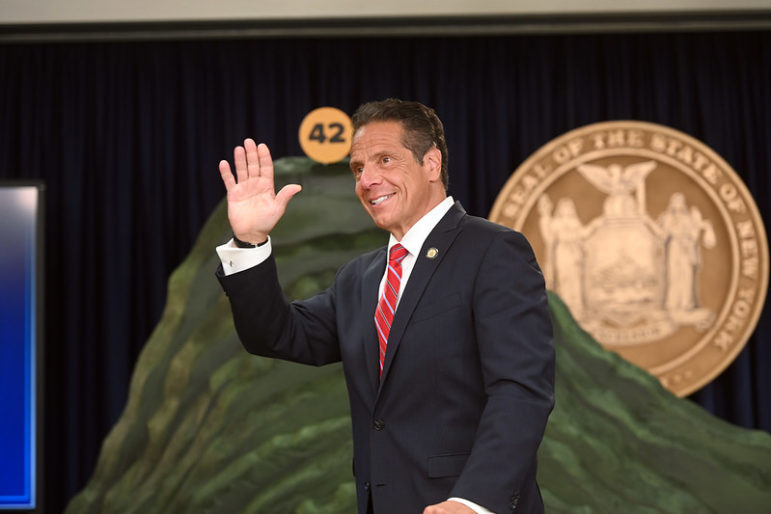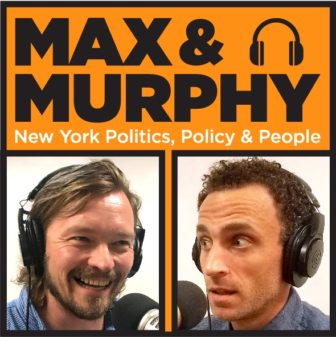
Kevin P. Coughlin / Office of Governor Andrew M. Cuomo
Gov. Cuomo recently signed bills to extend an evictions ban and open a $100 million tenant relief fund.Fear of a looming housing disaster have dogged New York City since the earliest days of the COVID-19 pandemic, leading the governor to declare and then extend a moratorium on evictions, the Rent Guidelines Board to freeze rents on the city’s stabilized apartments, and the legislature to pass a handful of measures offering relief and protection to tenants and moderate-income homeowners.
But for Fitzroy Christian, a veteran advocate with the Bronx organization Community Action for Safe Apartments, none of those actions have addressed the heart of the problem—so nothing done so far will hold back a wave of evictions once the governor’s moratorium lapses in August.
“All that it has done is delay the inevitable. The only thing that would protect people is the cancellation of rent,” Christian told WBAI’s Max & Murphy Show on Wednesday. “That we’re not going to evict them now but we are going to evict them later, makes no sense.”
From day one, the concern about Gov. Cuomo’s order was that it postponed rent but didn’t forgive it, meaning that tenants would owe a huge overdue balance once the moratorium ended. Especially for the many families barely getting by, and those unable to tap into existing relief programs, paying that balance could be impossible.
“A lot of these people are home because businesses were closed or they were ordered to stay home because of the pandemic. They have no source of income or some of them had their income greatly reduced because they’re only working part-time. Some have only unemployment checks coming in and they have additional expenses because they’re at home doing things that they would normally not do and spending money to do those things,” Christian said.
“There is an upwards of 750,000 folks in New York who are three to four months behind their rent. Saying that, ‘Okay, you can’t be kicked out now but you can be kicked out later.’ Or If you can prove that you were affected by COVID-19 and that caused you to lose your income, you may not be evicted at all but we’re going to give your landlord the money judgment against so that they can come after you when you go back to work,” he added, referring to the Tenant Safe Harbor Act, which the governor recently signed. “They could probably come after your assets if you have a vehicle you may need to get to work or whatever.”
A proposal to cancel rent has been circulating in the state legislature for months, but it’s opposed by property owners, who say that without firm action to relieve landlords of mortgage payments and property taxes, eliminating rent revenue threatens to make buildings inoperable.
The state has created a relief fund for low-income tenants affected by the COVID-19 crisis. But it’s not clear that $100 million will be enough to address the broad needs among renters during an emergency whose endpoint cannot be predicted.
Christian and allies are seeking measures to cancel rent and to create a permanent rental voucher program.
“They have not been doing anything that would really permanently help tenants and poor folks,” Christian said. “City Council and Albany are too cowardly to do what is necessary and cancel rent and protect people so that they can stay in their homes and their community.”
Hear the conversation with Christian below, or the full show, which includes a discussion of the state of punitive segregation in New York City jails.
Bronx housing advocate Fitzroy Christian
Max & Murphy Full Show of July 15, 2020
With reporting by Anika Chowdhury









